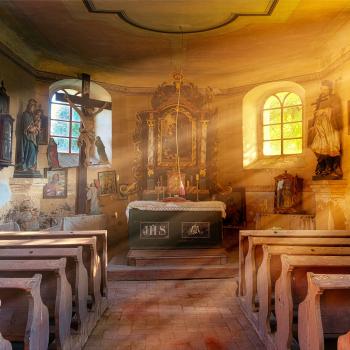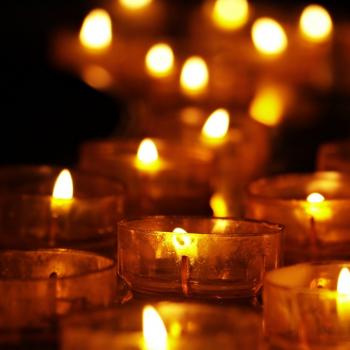I was still a child in 2002 when the Spotlight investigation report on the Catholic Church’s sexual abuse coverups in the Archdiocese of Boston was published. It has been close to two decades since then, and my own daughter is closing in on the age I was when the Spotlight report first came out. Despite this, a recent report by a grand jury in Pennsylvania suggests that little has changed.
I’ll be honest: I was not surprised by the findings of the grand jury report. I have long had concerns that the Catholic Church’s lip service to accountability and taking a hardline on sexual abusers was no more than talk. After all, the Church did not take actions to change cultures of silence in dioceses outside of the U.S., and here in the U.S. the Church has spent millions fighting statute of limitations reform which would allow more victims to seek justice. So, no—I was not surprised.
What has saddened me this time around, however, is seeing the ongoing denial within wide swaths of the Catholic laity and leadership. These same denials were certainly lobbed in 2002, I was simply not tuned in or aware of them. Today, after nearly a decade of writing about sexual abuse scandals and coverups and denials in the Protestant church, I am more able to trace the patterns.
I first fell down the rabbit hole after reading this tweet by writer and anti-abuse activist Elizabeth Esther:

In her tweet, Elizabeth Esther replied to a tweet by Fox News Contributor and Managing Editor of the Catholic News Network Raymond Arroyo. As Esther pointed out, Arroyo—and the priest he quoted—ignored the needs of the victims of these cases, focusing instead on something else.
Referencing to the grand jury report, Arroyo tweeted: “Homily at Mass tonight: ‘When I read of these criminal revelations, my first question was: how did they celebrate Mass?… the roots of this evil subculture must be ripped out of the Church at its roots.'” (Hold that reference to an “evil subculture” for a moment.) The focus, in this statement, is not on the victims but on the mass.
Esther responded to the tweet as follows: “The first question should have been: how are we helping the victims of these crimes?” She’s right. The first response should not have been confusion as to how a pedophile could celebrate the mass. It should have been concern for the victims.
As someone who has covered Protestant sexual abuse scandals for years now, I know well that a person can be a sexual abuser and go through all of the religious motions. This is not new. This is not surprising. This is not a revelation. And if Arroyo or his priest thought it would, they is part of the problem. Why? Because their response suggests that they would have de facto assumed that a priest—who by definition celebrates the mass—could not commit sexual abuse.
Let’s return to the reference to an “evil subculture.” What on earth could that be? After all, the true scandal is not the extent of the abuse but the extent of the coverup—the coverup goes all the way to the top, bishops, archbishops, and even the pope himself. This is not a “subculture.” It’s the current culture—a culture of secrecy, and of valuing the image of the Church over the lives of the victims.
After reading through responses to Arroyo’s tweet, I have a fairly good idea what these references to an “evil subculture” are about—and it’s not pretty.
It’s about the gays.

Text of exchange:
#1: If you never hear homosexual behavior is a sin from the pulpit, then you know the priesthood has been corrupted. Go back to Latin mass to weed out the pretenders
#2: I’m just curious as to why you think the Latin Mass would change that. Homosexual behavior/pedophilia has been existent in the church for centuries.
#1: The rigors of learning and practicing Latin and a refocus of the solemnity of the Latin mass takes more than a pedestrian interest.
#2: Yes, that’s true although they still had that problem before Vatican II. But I do wish the church would return to Latin.
Many of the allegations in the grand jury report date to decades in which the Latin Mass was still practiced. This has been true in other reports and investigations as well. The idea that returning to the Latin Mass would fix the problem suggests that this individual has no idea what the problem is.
The problem is the coverup—the secrecy—the disbelief of victims and the valuing of the image of the organization over the lives and wellbeing of its most vulnerable members. That is the problem.
But no! According to this individual—presumably a Catholic layperson—the real problem is that the priesthood has been corrupted by homosexuality. The real problem is that the Church has gone soft on homosexuality. The real problem is that homosexuals have been let into the priesthood.
Next, have a look at this exchange:

Text of exchange:
#1: Who says it’s a ‘sub-culture’, MR Arroyo? It appears to be the WHOLE culture of this heretical Pope and his non-Scriptural, non-Tradition “Church”.
#2: Don’t bring in
@Pontifex he is attempting to bring in the Church to the 21st Century#1: And what might the marks of the 21st Century be Bill?
While this individual does not state outright what “the marks of the 21st Century” are, I don’t think it’s a stretch to assume that his comment is a reference to homosexuality.
There are lessons here that are not being learned. And there are lessons being learned that are the wrong lessons. And no, it’s not just twitter comments. Check out this excerpt from a much longer statement by Robert Morlino, the Bishop of Madison:
There has been a great deal of effort to keep separate acts which fall under the category of now-culturally acceptable acts of homosexuality from the publicly deplorable acts of pedophilia. That is to say, until recently the problems of the Church have been painted purely as problems of pedophilia — this despite clear evidence to the contrary. It is time to be honest that the problems are both and they are more. To fall into the trap of parsing problems according to what society might find acceptable or unacceptable is ignoring the fact that the Church has never held ANY of it to be acceptable — neither the abuse of children, nor any use of one’s sexuality outside of the marital relationship, nor the sin of sodomy, nor the entering of clerics into intimate sexual relationships at all, nor the abuse and coercion by those with authority.
…
It is time to admit that there is a homosexual subculture within the hierarchy of the Catholic Church that is wreaking great devastation in the vineyard of the Lord. The Church’s teaching is clear that the homosexual inclination is not in itself sinful, but it is intrinsically disordered in a way that renders any man stably afflicted by it unfit to be a priest. And the decision to act upon this disordered inclination is a sin so grave that it cries out to heaven for vengeance, especially when it involves preying upon the young or the vulnerable. Such wickedness should be hated with a perfect hatred. Christian charity itself demands that we should hate wickedness just as we love goodness. But while hating the sin, we must never hate the sinner, who is called to conversion, penance, and renewed communion with Christ and His Church, through His inexhaustible mercy.
In response to the grand jury report and allegations regarding discarded cardinal Theodore McCarrick, some Catholic leaders are calling for a purge of homosexual priests. In an interview with Catholic Action for Faith and Family, Cardinal Raymond Burke declared that “it seems clear in light of these recent terrible scandals that indeed there is a homosexual culture, not only among the clergy but even within the hierarchy, which needs to be purified at the root.”
Homosexual purges. That’s the solution. Not creating uniform reporting policies, or removing priests who are under investigation, or defrocking priests subject to credible allegations. Not creating child protection plans or barring priests (or other Catholic Church staff members or volunteers) from being alone with minors. Not ensuring that victims are listened to and believed.
Not creating checks and balances. Not increasing lay oversight of the Church. Not encouraging a culture that is willing and able to question authority. No. None of that. Homosexual purges.
As though the problem was homosexuality, and not child abuse and a culture of silence and coverup—an authority-based culture that held the Church to be more important than those it trod on. These are the long lessons, and can only lead the Catholic Church down an ever darker path.
I have a Patreon! Please support my writing!















